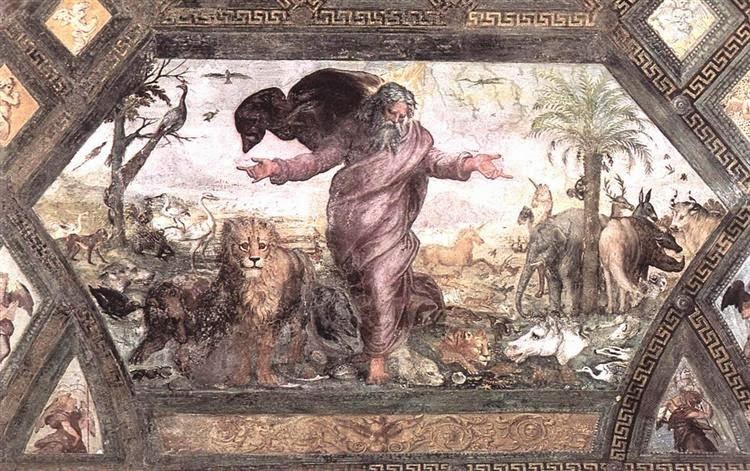The Faulty "Appearance of Age" Explanation for Genesis
It's ironic that people who don't believe the Bible want to know about how things seem "old" in the Genesis account of creation, and then refuse to accept explanations that are offered. Fortunately, there are people who honestly want to know about that as well. Even though some well-meaning creationists have offered their ideas, they should've left their six-guns in their holsters instead of misfiring and making things worse.
When reading Genesis, we can tell that Adam and Eve were walking and talking from the beginning, they were to tend to the garden, trees bore fruit, animals were brought to Adam, stars were shining — those mean that there was an appearance of age, right? Not hardly. "Appearance of age" is an incorrect and misleading term, and entirely subjective. But there's a better way to look at things, especially if I stop muddying the waters with this introduction.
 |
| "Creation of the Animals" / Raphael / 1519 |
Extracted and adapted from the author’s landmark 2015 book The Genesis Account: A theological, historical, and scientific commentary on Genesis 1–11.You can read the rest by clicking on "God created with functional maturity, not ‘appearance of age’".
One striking feature of the record of God’s creative acts in Genesis 1 is that the created things are fully ready to perform their appointed tasks. On Day 3, God created the plants mature, already bearing seeds. Later on, on Days 5 and 6, He created animals as adults ready to multiply, and finally Adam and Eve, likewise as adults, able to speak and multiply. For inanimate objects, on Day 4, God created the sun and stars already shining. All this is creation with functional maturity.
In contrast, there is an errant concept of ‘creation with apparent age’. One obvious flaw is that age has no appearance! Rather, we infer an age from appearance, after making certain assumptions about processes changing over time, and about the starting conditions.
I will try to explain further, presenting some case studies from Scripture and from various Christians, including the errant but often-misunderstood ideas of Philip Gosse.